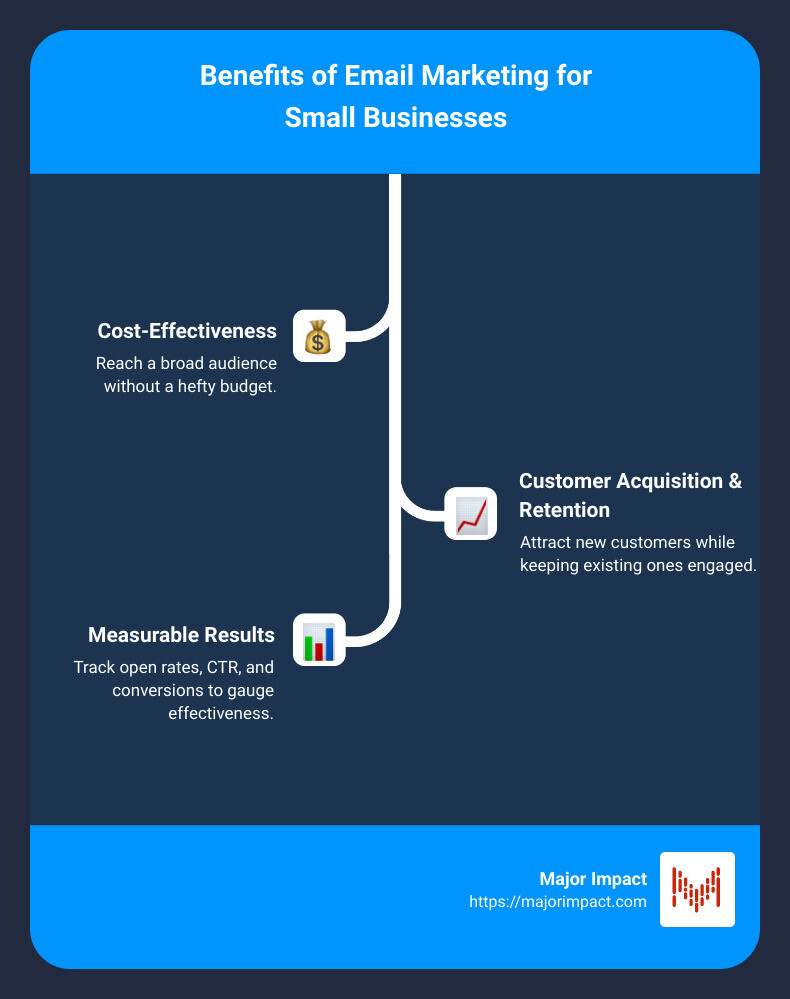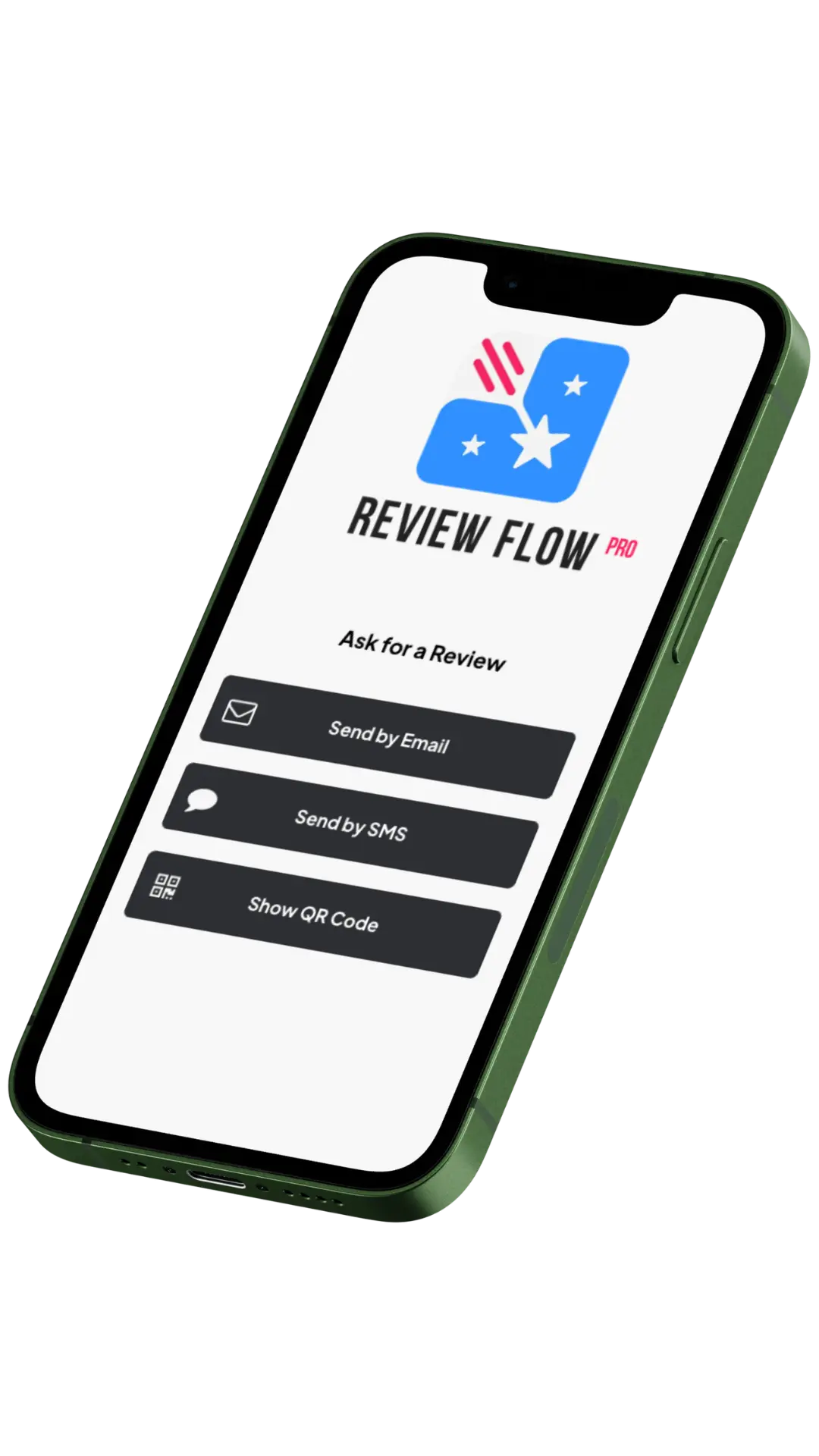Table of Contents
Why Email Marketing is Essential for Small Businesses
When it comes to boosting your campaigns, choosing the best small business email marketing platform is critical. Just want a quick answer? Here’s a shortlist of top contenders:
- Mailchimp: Great for beginners with its drag-and-drop editor and detailed analytics.
- Brevo (formerly Sendinblue): Excellent for email and SMS marketing with unlimited contacts.
- MailerLite: Budget-friendly with straightforward automation and a free plan.
- ActiveCampaign: Offers advanced automation and CRM integration.
- Constant Contact: Known for superb customer support and customizable templates.
Email marketing is not only cost-effective but also highly efficient for customer acquisition and retention. For every dollar spent, you can expect an average return of $42, making it one of the highest ROI marketing channels.
Benefits of Email Marketing:
– Cost-Effectiveness: Reach a broad audience without a hefty budget.
– Customer Acquisition & Retention: Attract new customers while keeping existing ones engaged.
– Measurable Results: Track open rates, CTR, and conversions to gauge effectiveness.
I’m Elliott Kosmicki, and I bring over two decades of experience in digital marketing and web design. Having helped generate over 200,000 leads for small businesses, I know what it takes to succeed in email marketing.
Top Email Marketing Platforms for Small Businesses
Choosing the right email marketing platform can be overwhelming. Let’s break down some of the best options for small businesses, focusing on features, pricing, and ease of use.
Mailchimp
Mailchimp is a popular choice for its user-friendly interface and comprehensive features. It offers:
- Drag-and-Drop Editor: Easily create professional emails without coding.
- Automation: Set up automated welcome emails, follow-ups, and more.
- AI Tools: Use AI to optimize send times and content.
- Analytics: Track open rates, click-through rates, and conversions.
Pricing: Starts at $13 per month for up to 500 contacts. Mailchimp also offers a free plan with limited features.
Brevo (formerly Sendinblue)
Brevo stands out with its generous free plan and robust features:
- Unlimited Contacts: Manage as many contacts as you need.
- Email and SMS Marketing: Combine email and SMS campaigns for better reach.
- Automation: Create complex workflows to nurture leads.
- Pricing: Free plan available. Premium plans start at $25 per month for up to 20,000 emails.
MailerLite
MailerLite is known for being cost-effective and user-friendly:
- Cost-Effective: Affordable plans without compromising on features.
- User-Friendly: Simple interface perfect for beginners.
- Automation: Set up automated email sequences easily.
- Free Plan: Available for up to 1,000 subscribers.
Pricing: Paid plans start at $9 per month.
ActiveCampaign
ActiveCampaign is ideal for those needing advanced automation and CRM integration:
- Advanced Automation: Create sophisticated email workflows.
- CRM Integration: Manage customer relationships within the platform.
- Segmentation: Target specific audience groups for better engagement.
- Pricing: Starts at $29 per month for one user.
Constant Contact
Constant Contact excels in customer support and customization options:
- Customer Support: Access to live chat, email, and phone support.
- Customizable Templates: Hundreds of templates to choose from.
- Analytics: Detailed reports to track email performance.
Pricing: Plans start at $12 per month for up to 500 contacts.
Each of these platforms has its strengths, making them suitable for different needs and budgets.
Next, we’ll explore how to choose the best email marketing platform for your small business.
How to Choose the Best Email Marketing Platform for Your Small Business
Choosing the right email marketing platform can make or break your campaigns. Here are the key factors to consider:
Compatibility
Ensure the platform you choose works seamlessly with your existing tools. Whether it’s your website, e-commerce platform, or CRM software, compatibility is crucial. For example, Mailchimp integrates well with Shopify, WordPress, and Salesforce, making it a versatile choice for many businesses.
Deliverability
A high deliverability rate means your emails reach your subscribers’ inboxes, not their spam folders. Look for platforms with a strong reputation for deliverability. ActiveCampaign is known for its excellent deliverability rates, helping ensure your messages get seen.
Scalability
Your business will grow, and your email marketing needs will evolve. Choose a platform that can scale with you. Brevo (formerly Sendinblue) offers unlimited contacts and scalable pricing, making it a great option for growing businesses.
Customer Support
When issues arise, prompt and effective customer support is invaluable. Constant Contact is renowned for its excellent customer support, offering live chat, email, and phone support to help you resolve issues quickly.
Integrations
Integrating your email marketing platform with other tools can streamline your workflow. MailerLite offers integrations with popular tools like WooCommerce and Zapier, making it easier to manage your marketing efforts.
By focusing on these factors, you can choose the platform that best aligns with your business goals and needs.
Next, let’s dig into the best small business email marketing strategies.
Best Small Business Email Marketing Strategies
Segmentation
Segmentation is all about dividing your email list into smaller, more specific groups. This allows you to create targeted campaigns that increase engagement.
- Use Data: Segment your list based on demographics, behaviors, and preferences. This helps tailor your content to resonate with each segment.
- Keep it Simple: Start with a few key segments to avoid being overwhelmed. Focus on elements that will make the most impact.
- Test and Refine: Use A/B testing to see what works best for your audience. Refine your strategy based on the results.
- Provide Value: Ensure each segment receives valuable content, whether it’s promotions, educational material, or exclusive access to new products.
Personalization
Personalization goes beyond adding a customer’s name to an email. It’s about creating customized content that speaks directly to their preferences and needs.
- Customized Content: Use data to tailor your emails. For example, recommend products based on past purchases.
- Increased Loyalty: Personalized emails can increase customer loyalty. According to a study, personalized emails can boost click-through rates by 14% and conversion rates by 10%.
- Customer Preferences: Addressing customer preferences can make your emails more relevant and engaging.
Automation
Automation saves time and ensures consistent communication with your audience.
- Time-Saving: Automated emails reduce the risk of human error and free up time for other tasks.
- Consistent Communication: Set up automated workflows for welcome emails, follow-ups, and reminders.
- Triggered Emails: Send emails based on specific actions or timeframes, such as a welcome email when someone subscribes.
Content Strategy
Your content strategy should focus on creating engaging, value-driven emails with clear calls to action.
- Engaging Content: Use visuals, short sentences, and bullet points to make your emails easy to read.
- Value-Driven Emails: Provide valuable information, like tips, how-tos, and exclusive offers.
- Call-to-Action: Ensure your emails have a clear call-to-action, such as “Shop Now” or “Learn More.”
Analytics
Tracking performance is crucial for optimizing your email marketing campaigns.
- Track Performance: Use analytics to monitor key metrics like open rates, click-through rates, and conversions.
- A/B Testing: Test different subject lines, content, and CTAs to see what resonates most with your audience.
- Optimize Campaigns: Use the data you gather to refine your strategy and improve future campaigns.
By implementing these strategies, you can create more effective email marketing campaigns that resonate with your audience and drive results for your small business.
Next, let’s explore some frequently asked questions about the best small business email marketing.
Frequently Asked Questions about Best Small Business Email Marketing
What is the best email marketing platform for small businesses?
When it comes to choosing the best small business email marketing platform, several options stand out:
- Mailchimp: Known for its user-friendly drag-and-drop editor, automation features, and robust analytics. It offers a free plan for up to 2,000 contacts, making it ideal for beginners.
- Brevo (formerly Sendinblue): Offers unlimited contacts and combines email and SMS marketing. It includes automation tools and starts with a free plan that allows up to 300 emails per day.
- MailerLite: A cost-effective and user-friendly option with automation features. The free plan includes up to 1,000 subscribers and 12,000 emails per month.
- ActiveCampaign: Perfect for those needing advanced automation and CRM integration. It offers detailed segmentation and starts at $9 per month.
- Constant Contact: Known for excellent customer support and customizable templates. Pricing starts at $12 per month for up to 500 contacts.
How do I set up email marketing for my small business?
Setting up email marketing involves several steps:
- Choose an Email Marketing Solution: Select a platform like Mailchimp, Brevo, or MailerLite that fits your needs.
- Build Your Email List: Use opt-in forms on your website and social media to collect email addresses. Offer incentives like discounts to encourage sign-ups.
- Segment Your Audience: Divide your email list into smaller groups based on criteria like purchase behavior or location. This allows for more personalized and effective emails.
- Create Automated Campaigns: Set up automated emails for welcome messages, abandoned carts, and follow-ups. This ensures consistent communication without manual effort.
- Analyze Performance: Use analytics to monitor key metrics like open rates and click-through rates. Tools like A/B testing can help optimize your campaigns.
Does email marketing work for small businesses?
Absolutely! Email marketing can be incredibly effective for small businesses. Here’s why:
- Sell to Prospects: Convert leads into customers by sending targeted promotional emails and special offers.
- Boost Referrals: Encourage satisfied customers to refer friends and family through referral programs and incentives.
- Re-engage Customers: Use email campaigns to re-engage inactive customers with personalized offers and updates.
By leveraging the right email marketing platform and strategies, small businesses can build strong relationships with their audience and drive significant growth.







